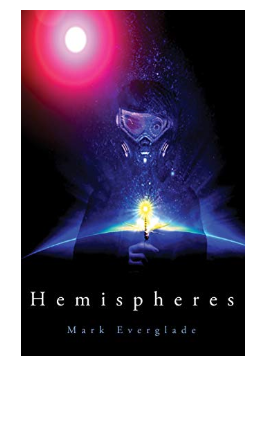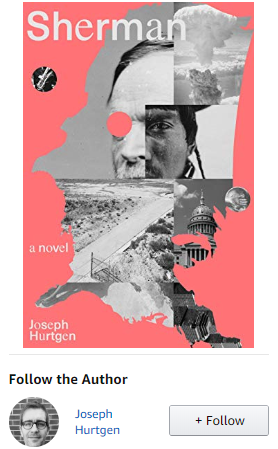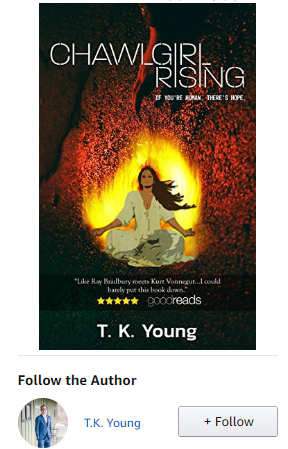Start Writing: Episode 111: Exposition Part 5: Other Perspectives
Source Material for the Episode
Examples from the books discussed in the podcast
Flashback quote from tae-kwon-GO
They went silent for a while, too long. I saw something move in my peripheral. I turned and saw the barrel-chested man taking sight, his gun resting on a mailbox. I rolled out of his vision behind a tree. A shot rang out, kicking up dust close by. I dove for cover through a shrub row and got scratched up on my arms. I should have phoned in a RoboRonald the second I saw them.
“Where you gonna go now, boy? Gonna run back to your mammy?”
I wished that, most days I wished that. I could picture her freckled face running a hand through my coarse hair the color of coal. Her parents were both Irish—she looked a lot like Lake really, and Dad was German-English, but I had skin the color of chestnuts. Dad thought mom cheated on him, grasped that belief like a burning coal. The night of my 16th birthday, he threw her against a wall and then lashed at her with his belt, lashed and lashed. I couldn’t do anything to help, just watched from behind the edge of my door as he beat her while she screamed “He’s your son” over and over. I fell asleep somehow, her cries of pain ringing in my ears, and I never saw her again. Maybe he killed her. Maybe she slipped out and ran far away.
Exposition quote from Sherman by Joseph Hurtgen
Atepa took Sherman’s picture. Even though the camera was digital, the lighting was up to professional standards, and her office was informed by a Bauhaus aesthetic—a spartan and orthogonal arrangement of steel, glass, and hardwoods—Sherman’s picture still came out looking like something from the Civil War era. The severe cut of his jacket, the high collar, the grisly beard—these elements practically screamed 1863, but the way he held himself, as if the next bombardment was only minutes off, affixed Sherman eternally to his time, even though he was stranded far apace from the battlefields of the American Civil War.
Chawlgirl Rising, Chapter 1, first two paragraphs:
Once on his orphanage’s flickering tablet Lucas had found images of India’s jade jungles, women wrapped in glowing saffron, the cobalt veins of rivers that coursed with the murmurs of the gods. Now as his shuttle roared toward yet another city’s erasure that riot of vanished color haunted his mind. He wondered if it would make the relocations easier if he carried no memories, felt nothing for those he’d leave to die.
There wasn’t enough water to produce enough food. There wasn’t enough fuel to desalinate more water. And when the Energy Ministry identified a city that could no longer be sustained by the Hegemony’s dwindling resources it sent Lucas and his fellow control officers to staunch the bleeding.
Chawlgirl Rising, Chapter 1, direct implant exposition
His pilot, an implant, throttled the shuttle into a long glide toward the water tower. Slumped unconscious in his seat, the boy controlled the craft’s onboard computers with his mind. Pus leaked from the electronics glittering against the pilot’s bare scalp, and he reeked of months unwashed. Only the slight flutter of his chest and the sweat pooling in the brown hollow of the boy’s throat showed he still lived. Implantation was a cruel fate to choose, but agreeing to meld your mind with the Hegemony’s computer systems was one of the only ways to guarantee your place in the relocation lotteries. And if the relocations didn’t work, if even forced labor was not enough to increase the Hegemony’s food and water production, then every citizen in Asia would face far worse.
Chawlgirl Rising, chapter 3, antagonist introduction (dialogue exposition showing the antagonist working at cross purposes)
“Again you ask me to do this?” Minister Lohendra said. Sweat glistened on the Energy Control Minister’s narrow face, and the tendons in his throat quivered at his robe’s collar. His withdrawal symptoms were worsening.
Ng joined his superior at the Spire’s window. Lucknow sprawled under wads of molten cloud before them, its towers swelling like chafing pistons as each new building dwarfed the last. The Hegemony capital’s monumental construction projects were an empty exercise, a necessity to reassure the people that a future existed outside the Spire. Fewer Hindus believed in reincarnation. They no longer desired another turn of the wheel on a world they thought was ending. Here at the dawn of a new age, they’d lost their belief.
“You have nothing to say?” Lohendra asked. “I go before Parliament in one hour to serve as your executioner and you have nothing to say?”
“I am not so swift of tongue as you minister,” Ng answered.
“No, no that is true. Your kind prefer the shadows.” Lohendra glanced at him. “Have you prepared my dosage?”
“Of course.” Ng reached into his vest pocket and drew out a small plastic tab. Inside its blister a blackish green foam frothed like something alive, and he smiled at the Synesth’s machined perfection.
“My weakness pleases you Ng?” the minister asked. “After we slaughtered your kind by the millions it feels good to have this small power, yes?”
Ng cursed himself for allowing his composure to break. He was too close to the fulfillment of his plan to give himself away with a mistake.
“Should this government in its wisdom turn the last of my people to ash,” Ng answered, “I would offer my thanks if it brought you and I one step closer to achieving our purpose.”
The Minister cocked a jittering eyebrow, then returned his attention to the window. On a clear day he would see Nepal’s verdant fields, the mountain glaciers that blessed the Hegemony’s people with the last source of fresh water in the world outside of Russian or Canadian hands. Water and earth, the gifts the Hegemony had bought with so much Chinese blood.
But there were no more clear days. And when the time was right Ng’s revenge would come sudden and vicious. No one in the Hegemony would be safe.
Hemispheres Quote by Mark Everglade
Shedir rubs his long nose four times, triggering his occipts’ auto-clean routine. The external membranes of the electronic eyes revolve around their inner spheres as if a solar system. He searches through an icy fog like a sheet of blurry diamond crystals until the cave’s entrance is clear.
“Hunting and gathering, same thing humans have done for most of their existence,” his companion says.
“‘Cept this time the prey is a fellow human being.”
“Those rebels will never be one of us. They abandoned our ways, and now they abandon their lives. Living in shame in caves. Outcasts, by choice! Can you imagine that?”
“Yeah, but you ever think of what it’d be like to have seasons and sunlight? I’m not sayin’ I’m a sympathizer with the Rotationists but it would be odd. The entire sky would blink day and night cycles. The evening would slowly fall asleep.”
“You’re still comparing things to an Earth you never saw?”
“Guess we all do. But it must make people divide their life differently, day, night. I don’t know ‘bout you, but when this is all over I’m gonna spend the fireflies I earn on a ticket to Dayburn and see the sun for my own eyes,” he replies.


